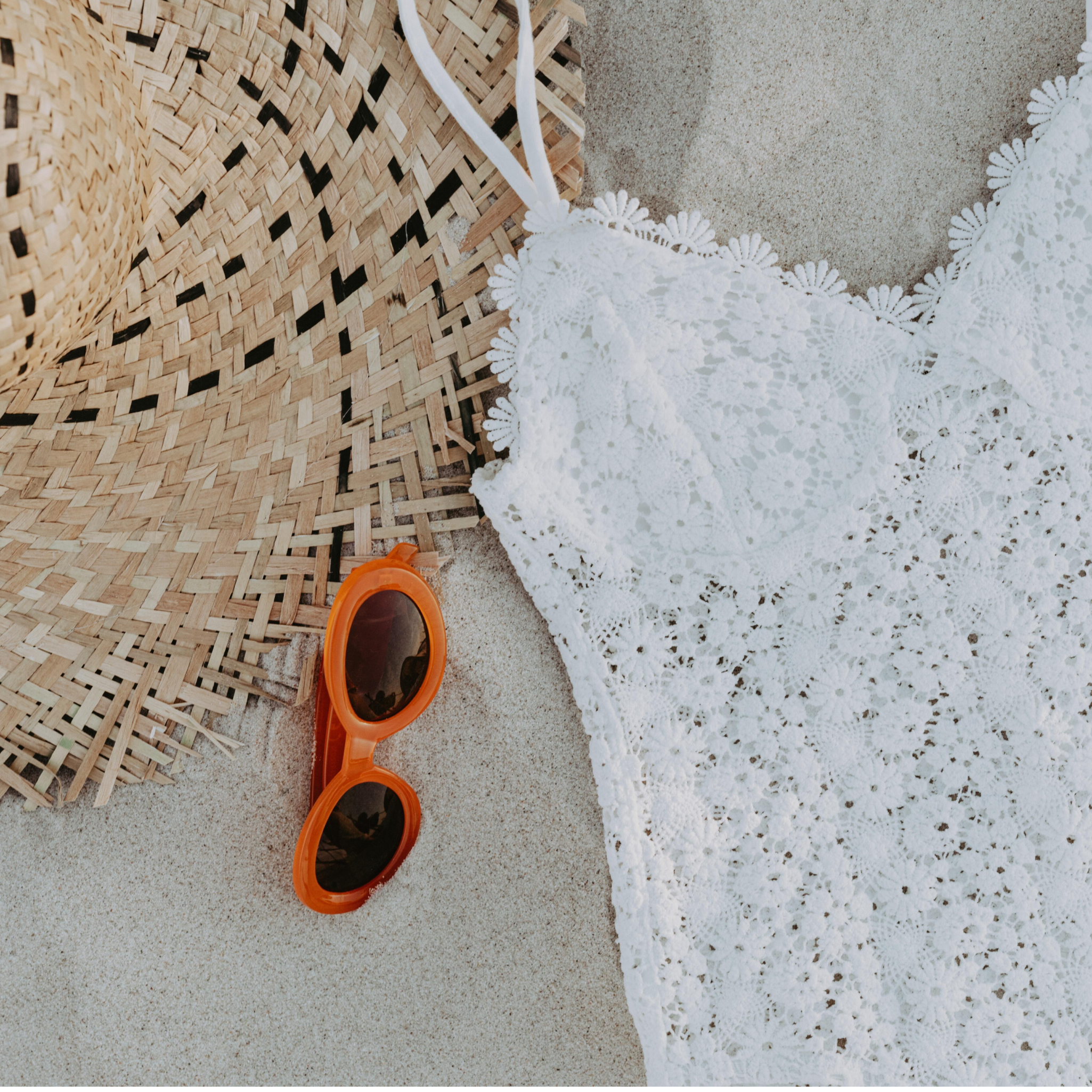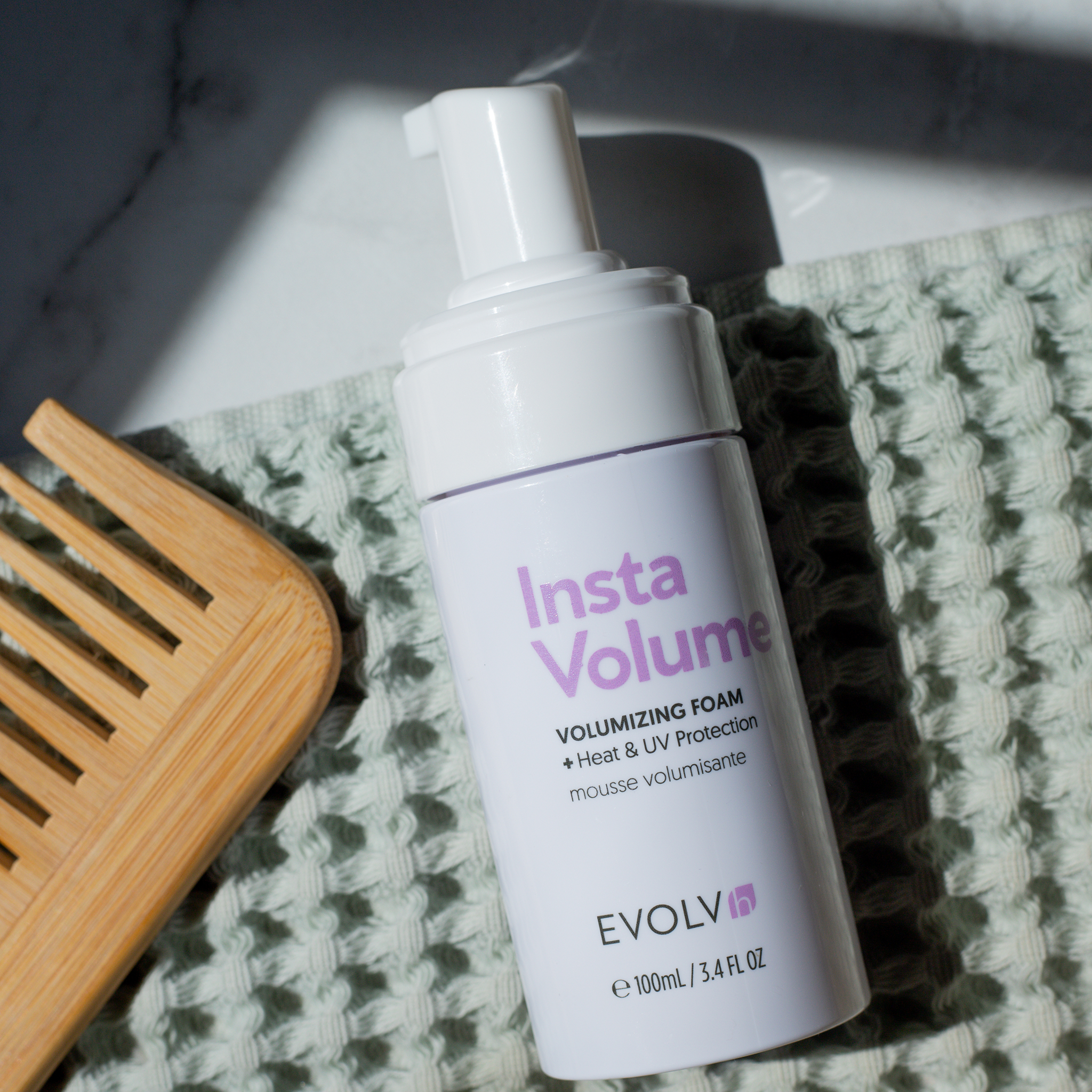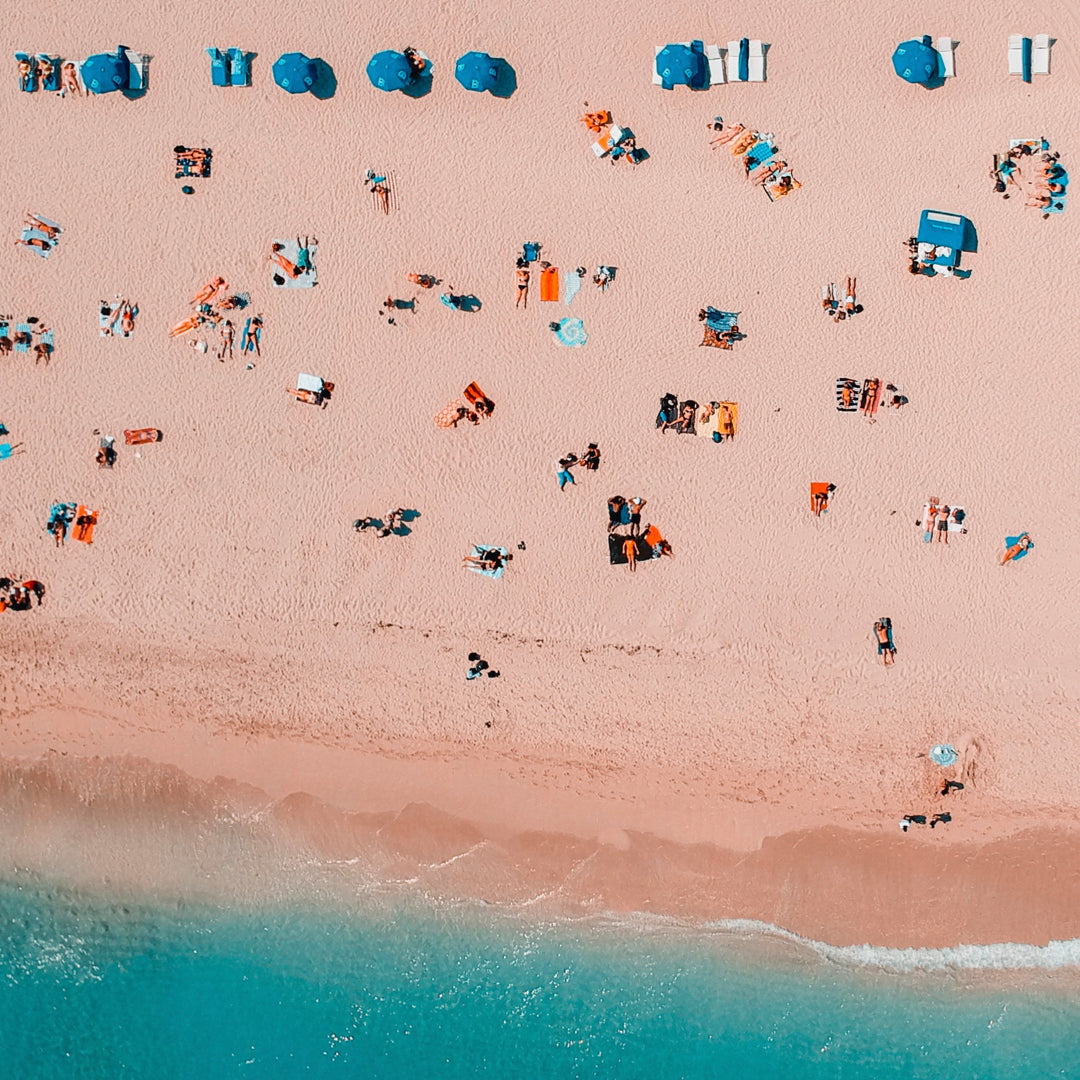The Answer To Improved Hair Growth? A Healthy Scalp!

If you asked an audience to raise their hand if they were looking for longer, stronger, more abundant, and healthier looking hair - we bet that a majority of men and women alike would have their hands up in the air. Not only are many of us desperate for these hair goals, but we are also neglecting the most important aspect (and body part) that can affect our hair growth (and yes, hair loss). The answer often lies in how well you are treating your... wait for it... scalp.
An unsung hero, the scalp, is much more than just the place where your hair follicles lay - it’s the very foundation from which your hair grows and there is a direct correlation between scalp health and the condition of your strands. Taking care of your scalp to optimize hair growth and condition isn’t just a great idea, it’s simply a must.
Let's take a closer look at the elements of a healthy vs. unhealthy scalp and guide those in need of some TLC.
An Unhealthy scalp – what does it look (or should we say “feel") like
To achieve a healthy head of hair, it’s essential that your hair follicles are kept clean, clear, and maintained. If they are weighed down with sebum (a.k.a. oil), or clogged with dead skin, dandruff, or inflammation, these are clues that you have scalp issues which will affect your hair health. Similarly, if you find that your hair is falling out, your scalp is itchy and tight, the texture of your hair has changed, or your flakiness is out of control, you can take these as signs that you are in the unhealthy scalp category and you need some serious scalp care.
A few more signs: if you can’t go a day without washing your limp greasy strands, it's likely that your scalp is not at its best and may be suffering from additional maladies like flaking, lack of hair growth, and even severe shedding, all of which may be caused by overactive sebaceous glands.
What Causes an Unhealthy Scalp
Look to your everyday routine for unhealthy scalp culprits. That’s the good news and the bad news, as they say. Stress, pollution, and poor eating habits are contributors, however, among the biggest offenders is buildup around the hair follicles – caused by the overuse of hair and scalp products like dry shampoo, heavy oils, and sprays. If not properly cleaned, the buildup on your scalp will clog your hair follicles - leading to breakage, dryness, and in extreme cases, hair loss. Even with less extreme cases, the various types of scalp and skin rash or irritations are just plain uncomfortable and unattractive.
How often you wash your hair, and with what kind of shampoo, plays an important role in the overall condition of your scalp. Irritating ingredients like sulfates, parabens, alcohol, and mineral oils (ingredients that you will NEVER find in EVOLVh products) are big time culprits of scalp problems.
Sulfates in particular are important to avoid because they are super strong detergents that remove all kinds of dirt and grime at the industrial level. These are so harsh on our tender hair follicles that using products with sulfates can dry up hair follicles and cause them to overproduce sebum (oil).
Dry scalp and dandruff are the most common of all scalp issues - so here's what to watch out for:
- Dry scalp leads to itching and flaking, and if the skin breaks from cracking or scratching, bacteria can enter and cause an infection.
- It’s very common in dry climates, and it’s more likely to happen as you get older or you use harsh hair products that strip your hair’s natural oils.
- We all know the term dandruff, which translates to small pieces of skin flaking off your scalp and leaving a sprinkling of white on your shoulders. Caused by overly dry, or overly oily skin, and certain illnesses like HIV or Parkinson’s disease, it can also be a reaction to certain soaps or shampoos, or a fungus on your scalp.
Tips for Optimal Scalp Health
Eat A Balanced Diet with Supplementation
It’s no surprise that a balanced diet helps our body function like a well oiled machine, and the scalp and hair are no exception. There is evidence that deficiencies in particular vitamins contribute to some common scalp woes. Vitamin B deficiency equates to dandruff. Zinc deficiency contributes to hair shedding. Protein deficiency equals weak brittle hair and loss of color. Lack of omega-3 and other similar healthy fats causes dry and flaky scalp.
In fact, hair analysis can confirm the presence of toxic elements and nutritional deficiencies – even years later. So what you do today will contribute to your scalp and hair health for years to come. As a general rule – the top noted vitamins for best hair health are niacin, biotin, iron, omega 3s, Vitamin A, B6 and Vitamin C. Eating a balanced diet of fruits and veggies, whole grains, and lean protein is always a good idea.
> Better Roots RootBoost Complex
Learn more about The Best Foods for Healthy Hair here!
Massage your Scalp
Hair loss is not only a man’s problem and women can attest to that. Several studies confirm that just four minutes of scalp massage a day increases activity among the genes known to promote hair growth, and dials down the activity of genes linked to hair loss and inflammation. Improvements in hair thickness were noted in these same studies. So when your locks start to look less than lustrous, you should try a simple scalp massage. It’s free, you can DIY, and it’s backed by science. An added bonus: it can increase blood flow to the scalp and to the hair follicles.
In 3 steps you will be well on your way to scalp heaven, and hopefully better hair growth:
1. Apply light to medium pressure to your scalp using the fingertips of both hands, moving in small circles.
2. Work your way across your scalp to cover all areas.
3. Try to massage your scalp using your fingertips for at least 5 minutes at a time, several times a day.
Ahhhhhhh, it feels so amazing!!
Wash your hair, but not too often
We’ve covered the importance of a sulfate-free shampoo, but how frequently you wash is also vital. Your shampoo keeps your hair and scalp clean, but over washing can cause damage which leads to stripping of the natural oils that help your scalp and hair function properly. Alternatively, not washing your hair frequently enough allows products and natural oils to build up, leaving hair greasy. It’s all about finding your own balance. Here's our guide >
For those who struggle with excessive oiliness and buildup of sebum (you fit into this category if you have flat oily hair within one day after washing), we’ve introduced a new two-step system that not only properly cleanses the scalp to combat excessive oil, but also provides soft, smooth hair while removing overabundant sebum. InstaVolume allows you to get to day 3 without additional washing, thereby protecting your hair and your scalp.
Nourish the scalp with regular conditioning
Just like your skin, which requires regular moisturizer, your scalp benefits from hydration. Many don’t use conditioner on their scalp because they are afraid to clog pores or weigh down fine hair, but with a non-coating and non-comedogenic conditioner, you can actually use it from roots to ends to moisturize both hair and hair follicles, which does in fact help hair grow faster while sealing the cuticle to prevent damage – giving your hair free reign to grow without breakage.
While all EVOLVh conditioners have a blend of essential fatty acids (EFAs) and lecithin to contribute to optimal hair and scalp health, we have two superstars: SmartColor Protecting Conditioner and SmartCurl Leave-In Conditioner, which boast the highest levels possible of EFA’s and Lecithin.
A quick note about products that coat the hair: coating means potential build up, which could lead to the clogging of follicles and all the scalp no no's. You should be opting for a non-coating hair care line that avoids ingredients like silicones, parabens, and mineral oils. EVOLVh is an internal-to-hair line (think skincare) so our products are absorbed into the hair to target the cortex and impart nutrients to each and every hair strand - so hair feels like hair, never crunchy or stiff with buildup.
Incorporate products that support hair longevity and scalp health

Our innovative Better Roots System is designed to extend the longevity of your strands and nourish your scalp for healthy regrowth! The best time to use these products is before you really need them. And if you are already experiencing excessive shedding, thinning, increased brittleness, or loss of hair, the Better Roots system will help you have the best chance to reverse the clock without the use of drugs and their related side-effects, and regain healthy regrowth over time, while extending the overall health and vitality of your hair years into the future.
Consider avoiding using hair color
Please take precaution when coloring your hair to avoid both hair and scalp damage. The number 1 rule: start with a healthy scalp.
- Do not use hair color if you’re experiencing dandruff or psoriasis or have any open cracks from scratching or scalp dryness.
- Refrain from washing your hair a day or two before coloring as the natural oils will help protect your scalp while coloring.
- Always conduct a patch test whether you are coloring at home or with a stylist at a salon. This will help you avoid the pain and itchies that can be caused by a non compatible color or peroxide.
- Never leave hair dye on longer than needed, follow the instructions.
- After you wash the dye from your hair, rinse your scalp thoroughly with water to ensure that all dye has been removed.
Hopefully this guide helps you remember the underdog of hair health - the scalp. Show your scalp some love and the goodness will flow over to achieving your very best, healthiest, and most beautiful hair. We promise!



